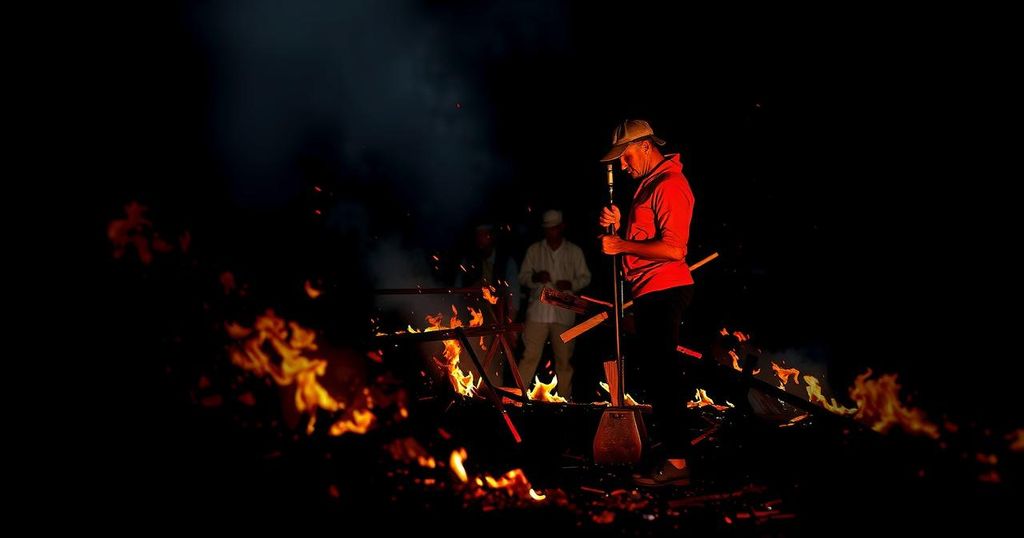Ten years since the Aceh peace agreement, Indonesia neglects victims of the conflict. Amnesty International reveals ongoing struggles for truth, justice, and reparations for tens of thousands affected. Calls for a truth commission and action against human rights abuses emphasize the urgent need for accountability from the government.
As Indonesia marks a decade since the peace agreement that concluded the Aceh conflict, it appears to have neglected the tens of thousands who continue to suffer from the aftermath, as stated by Amnesty International. Victims and their families remain unaware of the fates of their missing loved ones, and there has been a lamentable lack of truth, justice, and adequate reparations for those impacted by the conflict. Despite initial governmental assurances, meaningful efforts towards addressing these historical grievances have largely been absent, resulting in ongoing struggles for those left behind. The anniversary should signify a new commitment to address these unresolved issues, as called for by Amnesty International’s Campaigns Director for Southeast Asia, Josef Benedict. He remarked on the past decade as a ‘lost decade’ for victims. With an estimated 10,000 to 30,000 individuals—many of whom were civilians—perishing during the conflict between Indonesian governmental forces and the Free Aceh Movement, there exists a compelling need for accountability. Although a peace agreement was reached in 2005 with various commitments, the government has yet to fulfill these promises, leaving citizens yearning for acknowledgment and justice. While some investigative steps have been taken by the authorities and the National Human Rights Commission regarding human rights violations, endeavors have not produced a comprehensive account of events. Efforts to form a national truth commission have stalled with no evident political will. Meanwhile, in December 2013, the local parliament in Aceh passed legislation to establish a Truth and Reconciliation Commission, but implementation has yet to occur. Reports indicate that the violations carried out by Indonesian security forces against civilians may amount to crimes against humanity, yet significant governmental inaction has impeded proper investigations or prosecutions. With a flawed legal framework surrounding human rights, opportunities for victims to seek justice remain gravely limited. Notably, the existing Human Rights Courts have failed to address crimes committed in Aceh, and victims continue to face barriers in accessing justice. Moreover, while some attempts at compensation for victims have been made, these initiatives are inadequate and do not encompass the necessary reparations that are owed. The inadequacies of the Aceh Reintegration Agency’s compensation program do not engage with the specific harms suffered by human rights abuse victims during the conflict, particularly women affected by sexual violence. Amnesty International underscores the urgency of reconciling with the past, insisting that authorities recognize the grave human rights abuses perpetrated throughout the conflict. A call is made for the immediate establishment of a truth commission, setting the groundwork for true justice, reconciliation, and reparations. Family members remain in anguish due to the uncertainty surrounding their ‘disappeared’ relatives, perpetuating resentment and a potential resurgence of violence. Further, organizations such as Amnesty International urge both European Union and ASEAN states to acknowledge their roles in ensuring effective implementation of peace agreements, calling for prompt action to prevent further suffering. In summary, the continuing neglect of Aceh conflict victims by the Indonesian government marks a grave human rights oversight. The decade since the conflict ended offers a stark reminder of the unfulfilled promises and the pressing need for truth and justice for the thousands affected, highlighting that mere cessation of violence is insufficient without acknowledgment and reparation for past wrongs.
The Aceh conflict, which spanned several decades, involved violent clashes between Indonesian government forces and the pro-independence Free Aceh Movement (GAM), leading to significant civilian casualties estimated between 10,000 and 30,000. The conflict formally ended in August 2005 with a peace agreement that included commitments to address human rights abuses. However, ten years later, Amnesty International highlights substantial failures in implementing these commitments, resulting in ongoing suffering for victims and their families who seek justice, truth, and reparations.
In conclusion, the lack of substantive action from Indonesian authorities regarding the aftermath of the Aceh conflict remains a significant human rights concern. With numerous victims and families still awaiting justice and acknowledgment of their suffering, there is an urgent need for a proactive response from the government to address historical grievances. The call for a truth commission and comprehensive reparations must be prioritized to prevent the cyclical nature of violence and societal discord in Aceh.
Original Source: www.amnesty.org






